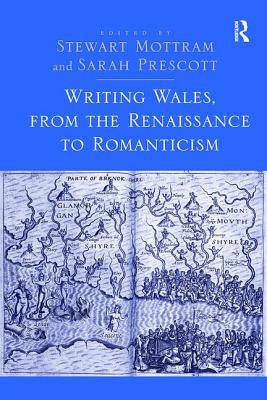
- Afhalen na 1 uur in een winkel met voorraad
- Gratis thuislevering in België vanaf € 30
- Ruim aanbod met 7 miljoen producten
- Afhalen na 1 uur in een winkel met voorraad
- Gratis thuislevering in België vanaf € 30
- Ruim aanbod met 7 miljoen producten
Zoeken
€ 96,45
+ 192 punten
Uitvoering
Omschrijving
Writing Wales explores representations of Wales in English and Welsh literatures written across three tumultuous centuries, from Wales' union with England in 1536, to its industrialisation in the early nineteenth-century. Uniquely, it explores how period divisions like 'Renaissance' and 'Romanticism' have helped shape scholarly treatments of Wales, and it asks if we should continue to reinforce such period divisions, or else reconfigure our approach to Wales' literary past.
Specificaties
Betrokkenen
- Auteur(s):
- Uitgeverij:
Inhoud
- Aantal bladzijden:
- 248
- Taal:
- Engels
Eigenschappen
- Productcode (EAN):
- 9781138108516
- Verschijningsdatum:
- 24/05/2017
- Uitvoering:
- Paperback
- Formaat:
- Trade paperback (VS)
- Afmetingen:
- 156 mm x 234 mm
- Gewicht:
- 353 g

Alleen bij Standaard Boekhandel
+ 192 punten op je klantenkaart van Standaard Boekhandel
Beoordelingen
We publiceren alleen reviews die voldoen aan de voorwaarden voor reviews. Bekijk onze voorwaarden voor reviews.











